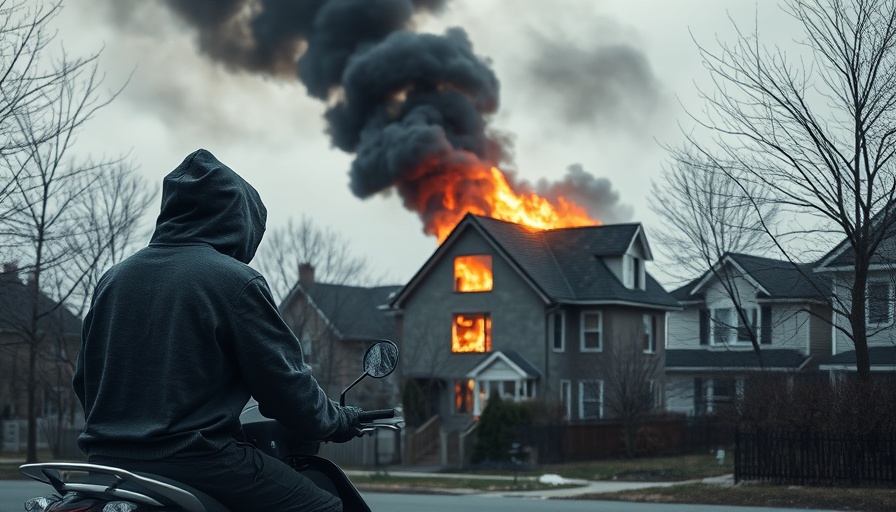
The Government's Stance: Southern California Edison’s Accountability
The U.S. government is taking a significant step in holding Southern California Edison (SCE) accountable for the devastating impacts of recent wildfires in Los Angeles County. A federal court has been asked to mandate the utility to cover the costs associated with the Eaton Fire that began in January 2025, which tragically resulted in the loss of life and the destruction of thousands of homes. Additionally, expenses related to combating the Fairview Fire from September 2022, which also resulted in fatalities, are under scrutiny.
Why Wildfire Liability is a Critical Issue
Wildfires in the western U.S. have dramatically increased in frequency and intensity, particularly due to climate change-induced extreme weather conditions. This spike places a heavier liability burden on utility companies, which are often implicated in causing these fires. For instance, the Camp Fire in 2018 forced PG&E Corp. into bankruptcy due to extensive fire-related liabilities. Utilities like SCE, therefore, find themselves at a crossroads, facing lawsuits or claims as communities grapple with rebuilding in the wake of catastrophic events.
The Specifics of the Cases Against SCE
In the lawsuits filed by the federal government in Los Angeles, it's alleged that SCE operated its power lines negligently, contributing to the ignition of these fires. The Eaton Fire, believed to have begun due to faulty equipment, is particularly troubling. Reports indicate that SCE was aware of potential dangers posed by wind conditions yet failed to act accordingly. With claims of detecting faults in their infrastructure around the time of the fire, SCE faces increasing scrutiny from both the government and the public.
Implications of the Utility's Negligence
If the federal court rules in favor of the government, SCE will be required to pay substantial fees for fire suppression and rehabilitation of the affected national forest lands. Costs for the Eaton Fire alone are estimated to exceed $40 million, underscoring the financial ripple effects of such negligence. This could set a precedent for how utilities manage their infrastructure during extreme weather and the responsibilities they hold when failures occur.
Addressing Wildfire Damages and Insurance Claim Processes
For South Carolina residents observing these developments, the implications of SCE's case underscore the importance of understanding how utility negligence impacts insurance claims. When disasters arise, knowing your rights as a policyholder can guide you through the claims process effectively, from documenting damage to navigating potential disputes with insurers. Homeowners need to stay informed about insurance litigation trends, including how utilities' liabilities can advance or impede personal claims processes.
Your Rights During Disaster Recovery
As wildfires and other disasters become more common, understanding your rights as an insured individual is critical. Staying informed about your policy language and ensuring coverage matches potential risks—such as fire-related damages—can empower policyholders during claims disputes. Keeping abreast of national trends in insurance claims related to disasters will further equip you to handle situations where you might encounter wrongful claim denials or inadequate settlements.
Concluding Thoughts: Stay Informed During Crises
The ongoing case against Southern California Edison serves as a reminder of the complex interplay between utility operations, environmental responsibility, and the insurance landscape. As these themes unfold, being proactive and informed will enable property owners to act decisively in the event of disasters, ensuring they are prepared to file claims effectively and understand their rights.
 Add Row
Add Row  Add
Add 




Write A Comment